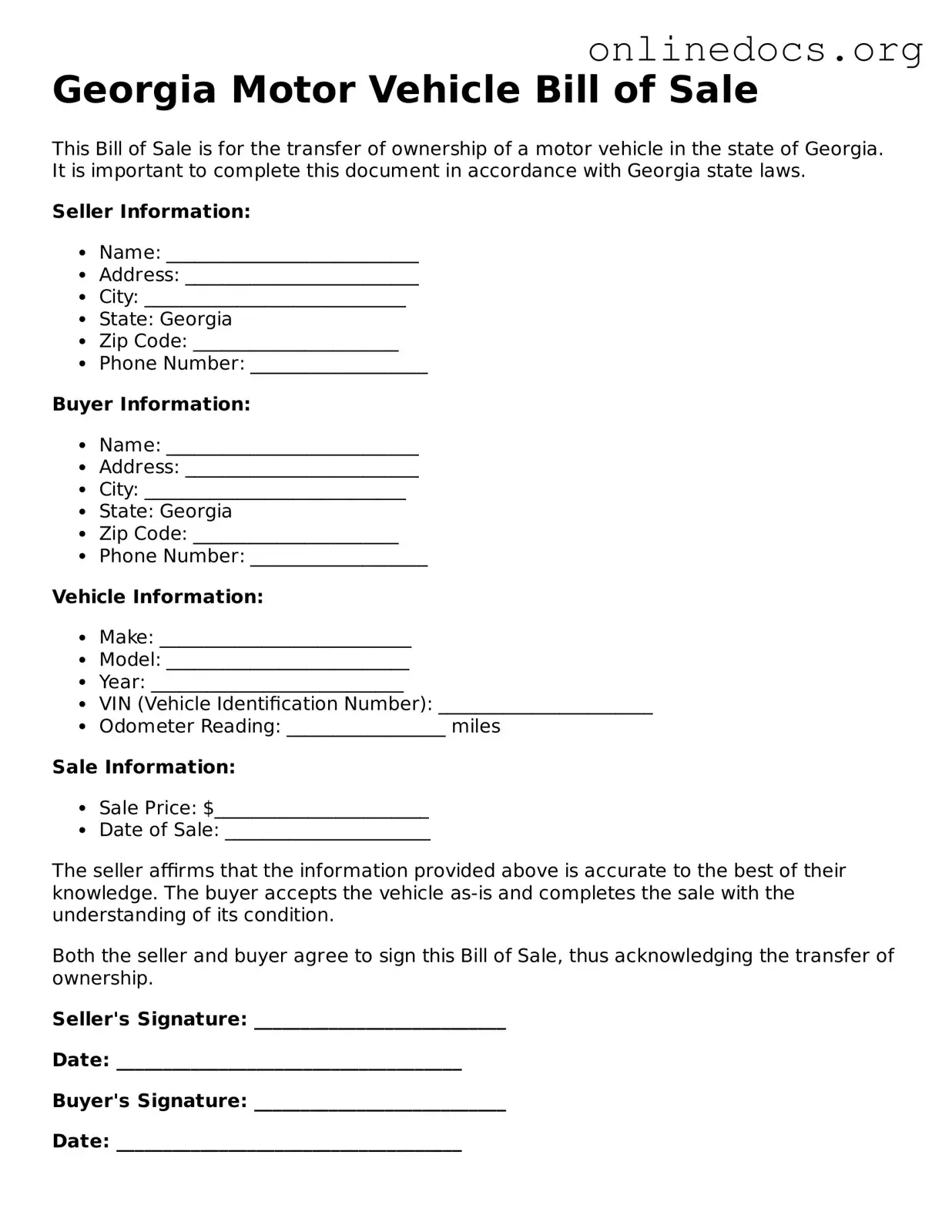When completing the Georgia Motor Vehicle Bill of Sale form, individuals often overlook critical details that can lead to complications later. One common mistake is failing to include the correct vehicle identification number (VIN). The VIN is essential for identifying the vehicle and ensuring that the transaction is valid. Omitting or miswriting this number can create confusion and may result in legal issues.
Another frequent error is not providing accurate odometer readings. The law requires sellers to disclose the mileage at the time of sale. If the odometer reading is inaccurate or left blank, it can lead to disputes between the buyer and seller regarding the vehicle's condition and value.
People sometimes neglect to include the date of the sale. This information is vital for record-keeping and can impact the buyer’s ability to register the vehicle. Without a clear date, it may be challenging to establish ownership or resolve any future disputes.
In some cases, sellers forget to sign the form. A signature is necessary to validate the transaction and transfer ownership. If the seller does not sign, the document may be deemed incomplete, leaving the buyer without proper documentation.
Another mistake involves not providing the buyer's information accurately. Including the full name and address of the buyer is crucial. Inaccurate information can complicate future registration and ownership verification.
Some individuals mistakenly assume that a bill of sale is not required for certain types of transactions. However, even if the vehicle is a gift or sold for a nominal fee, a bill of sale is still necessary to document the transfer of ownership legally.
People often fail to include the purchase price. This information is not only essential for the transaction but also for tax purposes. Without a stated price, both parties may face difficulties during the registration process.
Another common error is not providing a description of the vehicle. A detailed description, including the make, model, year, and color, helps to prevent misunderstandings and establishes a clear record of the vehicle being sold.
Some sellers do not keep a copy of the completed bill of sale for their records. Retaining a copy is important for both parties in case any issues arise in the future. Without a copy, it may be difficult to prove the terms of the sale.
Lastly, individuals sometimes overlook the importance of having a witness or notarization, especially for high-value transactions. While not always required, having a third-party witness can provide additional security and legitimacy to the sale.
